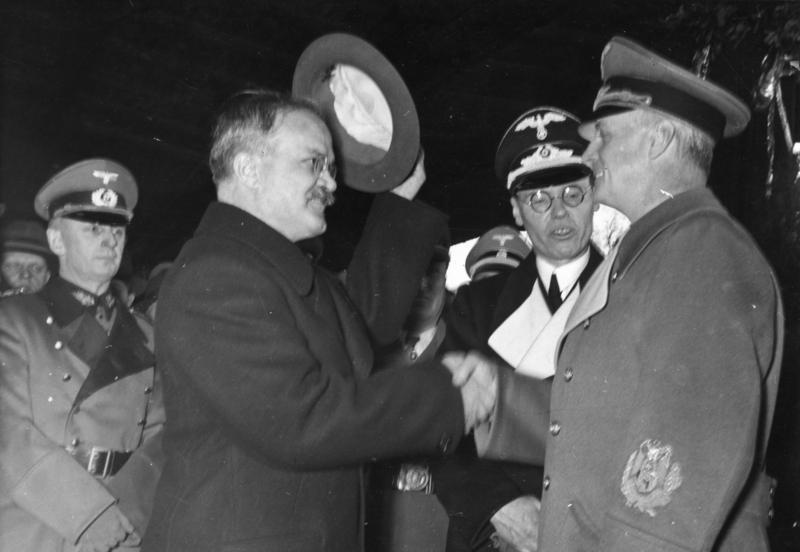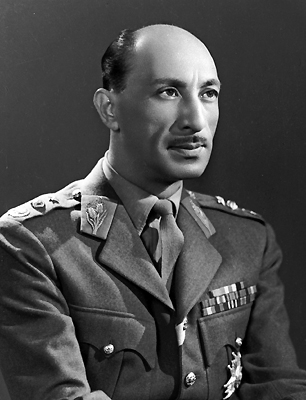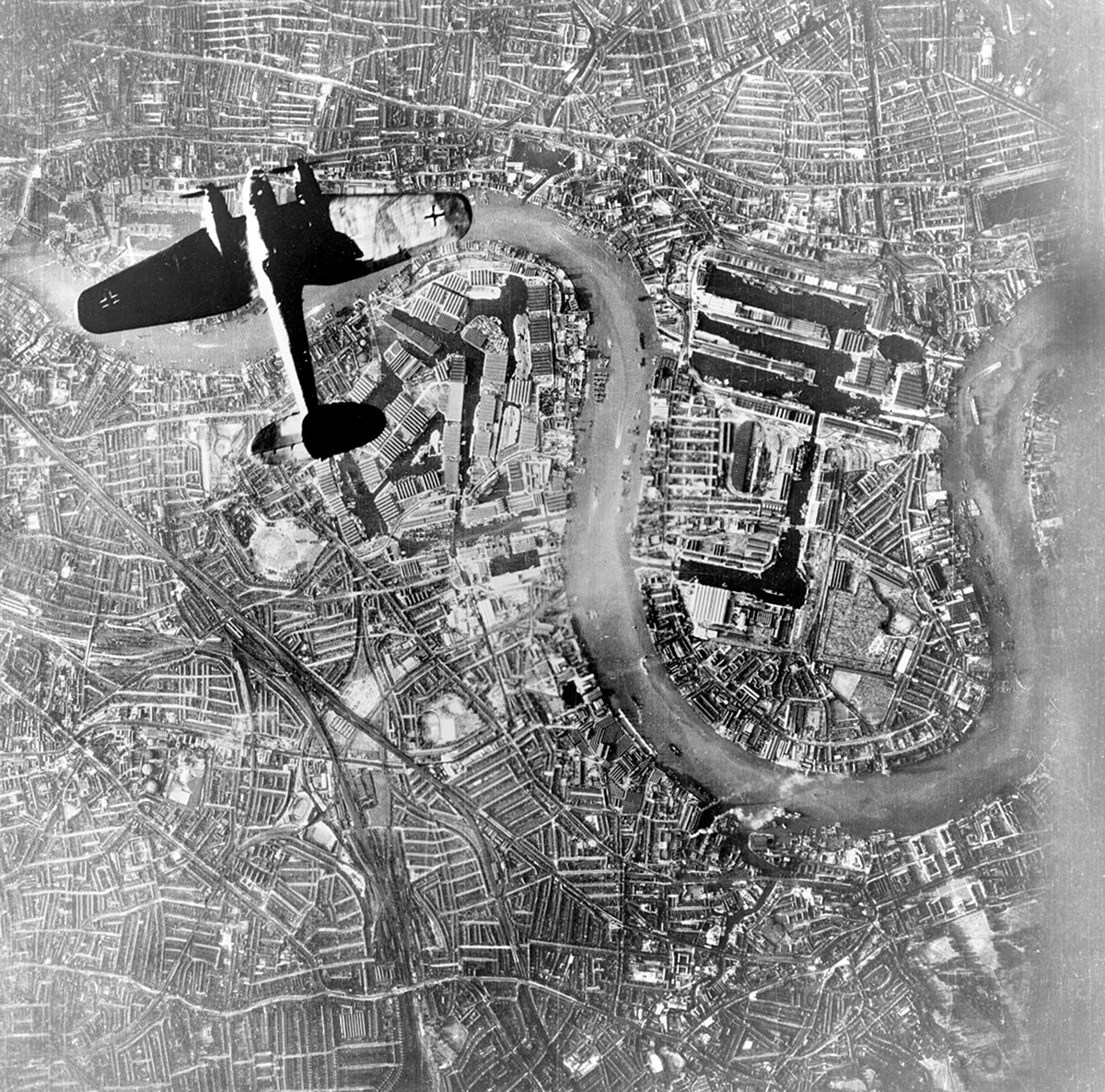Chapter 16 – Baby Blue
Western Front (Part 3)
May – June 1940
Western Front (Part 3)
May – June 1940
It’s hard to imagine how the war could be going worse for France. Their best divisions had just been cut off in a tiny holdout of Belgium and Calais and German panzers were now standing on the Channel. The German focus now turned north towards the Channel ports to outflank the remaining Allied units there. Calais was taken by the Germans on the 26th of May after a four-day siege. By the 26th, the last remaining major Channel port not under German control was Dunkirk. By the 20th of May, Chamberlain’s [1] government began making plans to evacuate the British Expeditionary Force (BEF) from Dunkirk, with the Admiralty planning for all small vessels available to evacuate the troops [2]. The plan became known as Operation Dynamo.
Despite all the chaos, it appeared as though the Allies might get a break. On 23rd, Gerd von Rundstedt had ordered the German panzers to halt out of concern about an attack on their flanks and questions about supply to the troops. Rundstedt also worried about the marshy terrain around Dunkirk being unsuitable for armoured advance. Other concerns included tank losses which in some places reached as high as 30-50% [3]. Finally, the death of Rommel at Arras shocked the German High Command and belief spread that ground needed to be consolidated before an attack was resumed [4]. On the 24th, Göring visited the headquarters of Army Group A, he subsequently endorsed Rundstedt’s order. The reasons for the endorsing of the Halt Order are still debated to this day. Some will argue that Göring stopped the Panzers for tactical reasons whilst others claim that the Reichspräsident wished to see his prized Luftwaffe finish off the British by pounding them to dust [5]. Anyhow, what is known is that the German halt until the 26th gave the Allies time to undertake Operation Dynamo in which over 338,000 British, Commonwealth, French, Belgian, Dutch and Polish troops were evacuated until the town finally fell on the 4th of June [6]. The stunning success of the operation gave Prime Minister Chamberlain a brief spike in popularity as the “saviour of Dunkirk” before the situation once again set in [7].
British troops evacuating from Dunkirk
On the 28th of May, Chamberlain sent Air Secretary Sir Samuel Hoare, First Lord of the Admiralty Winston Churchill, Vice-Chief of the Imperial General Staff Sir John Dill and Deputy Chief of the Air Staff Joubert de la Ferté to meet with French Prime Minister Reynaud [8] in Paris, Chamberlain deciding against flying to France himself given the circumstances. During the meeting, Reynaud pleaded with the British delegation to send more aircraft, warning that his deputy premier Pétain would agitate for a separate armistice with Germany. Also discussed at the meeting was the prospect of potential negotiations to end the war through Mussolini’s Italy. However, the British refused to consider the internationalisation of Malta, Gibraltar and the Suez Canal (confirmed by telegram from Chamberlain the same day) and Rome ignored French advances anyhow [9]. As the delegation was travelling home, the de Havilland DH.95 Flamingo aircraft they were travelling on suffered a major engine failure. With all attempts to save the aircraft unsuccessful, it plunged into the English Channel with all passengers killed [10].
DH.95 Flamingo
Winston Leonard Spencer-Churchill
(30 November 1874 - 28 May 1940; aged 65)
Whilst Dynamo was underway, new French commander Maxime Weygand (who replaced Gamelin on 17 May) attempted to rescue the trapped forces and exploit the German immobility by attacking north of the Somme River at Abbeville with the French 2nd and 4th Armoured Divisions and the British 1st Armoured Division. Whilst reducing the size of Germany’s bridgehead on the Somme by 50%, the Allies failed to breakthrough to the pocket and the commander of the French 4th Armoured Division, Colonel Charles de Gaulle, was killed on the 29th of May when hit by a German 37mm Pak 36 anti-tank round [11].
Colonel Charles André Joseph Marie de Gaulle
(22 November 1890 - 29 May 1940; aged 49)
On the 5th of June, the German Army began its final plan to conquer France and destroy its military resistance, codenamed Operation Fall Blau (Case Blue) [12], with an offensive across the Somme River to the Seine. Army Group B (which possessed the majority of the mobile units) attacked either side of the French capital of Paris. Initially, the Germans struggled to cross the Aisne due to French defence-in-depth tactics, being driven back at Amiens by French artillery. However, the French lines were eventually broken by the third day when the French 10th Army was forced to retreat to Rouen. Whilst German spearheads were overextended, the French were unable to exploit this due to Luftwaffe sorties. By the 9th of June, French aerial resistance had virtually ceased.
On the 10th of June, the French government declared Paris an open city. On the 14th, it fell to the Germans. To the many Parisians who had been unable to flee, they found the Germans to be surprisingly well-mannered.
German troops in Paris, June `1940
Additionally on the 10th, Italy finally declared war on France. Despite assaulting the French Alps with a force 10 times as strong as the defenders, the French managed to hold the Italians back.
On the 16th, Reynaud resigned as Prime Minister, believing his ministers no longer supported him. His replacement was Marshal Philippe Pétain. One of Pétain’s first actions was to request an armistice with Germany. When Göring heard of the French request, he dispatched Wilhelm Keitel, the OKW Chief of Staff, and Foreign Minister Ribbentrop to the Forest of Compiègne to negotiate with the French. Additionally, Mussolini dispatched Marshal Pietro Badoglio to sign of behalf of Italy [13] whilst Swedish Prime Minister Hansson dispatched his Armed Forces Supreme Commander Olof Thörnell and Defence Minister Per Edvin Sköld to sign the a separate armistice with the French in the nearby town of Saint-Quentin, officially ending French involvement in the Swedish war [14].
Marshal Pietro Badoglio
Olof Thörnell, Supreme Commander of the Swedish Armed Forces
Per Edvin Sköld, Defence Minister of Sweden
The terms of the armistice were harsh. Three-fifths of metropolitan France was occupied by Germany, with all French Channel and Atlantic ports under occupation, along with a small Italian occupation zone in the south and some minor border adjustments. Alsace-Lorraine was outright ceded to Germany. All costs of occupation were to be borne by the French government, around 400 million Francs per day. As a concession, the French Navy was not to be surrendered but disarmed and returned to port. All German POWs in French custody were to be released whilst French POWs in German custody were not. The armistice was a stinger for France, and not all Frenchmen accepted it...[15].
With the chaos and destruction in the west, no one really paid attention to the Soviet occupation of the Baltic States from the 15th-21st June. Well, almost everyone except the Finns.
Meanwhile in Britain, a political storm of its own was brewing.
Map of Europe following the French armistice, 22 June 1940
Footnotes
- [1] Due to there being no Norway debate, Chamberlain is still in power. For now that is...
- [2] The Admiralty’s plans here are identical to OTLs.
- [3] These were all major concerns for the Germans in OTL as well.
- [4] Yes, the Desert Rat dies in France before his OTL rise to fame (in addition to Monty, see Chapter 11). This was all become important later.
- [5] Most of why it took me so long to write this update was researching the Dunkirk evacuation and the Halt Order. After agonising for many hours, I concluded that a similar course would be taken. Feel free to comment.
- [6] Due to the Halt Order being similar, Dynamo proceeds similarly too.
- [7] Needless to say, Chamberlain’s reputation is slightly better than OTLs. However, this won’t be enough to see him survive in office much longer (Spoiler alert!!!).
- [8] Won’t go into much detail, but Daladier is still replaced by Reynaud as Prime Minister when the Sweden situation goes south.
- [9] The strategic situation is somewhat similar to OTL by this point.
- [10] Yes, this means Churchill is dead. Sorry.
- [11] De Gaulle too, I can only apologise.
- [12] In OTL, this operation was codenamed Fall Rot (Case Red) whilst Blau was the German operation in the Caucasus in 1942.
- [13] The inclusion of Italy in the 22 June armistice will likely bolster Mussolini's sense of prestige which was hurt by his exclusion in OTL (he signed a separate armistice with France on the 24th).
- [14] The Swedes sign a separate armistice due to their desire to not be affiliated with the Nazis beyond reluctant co-belligerence. Additionally, I say officially ended French involvement because the British will have some issues with French forces leaving the area and will likely "persuade" the French forces in Scandinavia to stay and fight on.
- [15] Will address in future updates.
Announcement
I have been informed by some that this post resembles Wikipedia in several places. I’m not trying to plagiarise and so here’s the article I got a lot of research from;

Dunkirk evacuation - Wikipedia
Comments?
Last edited:






